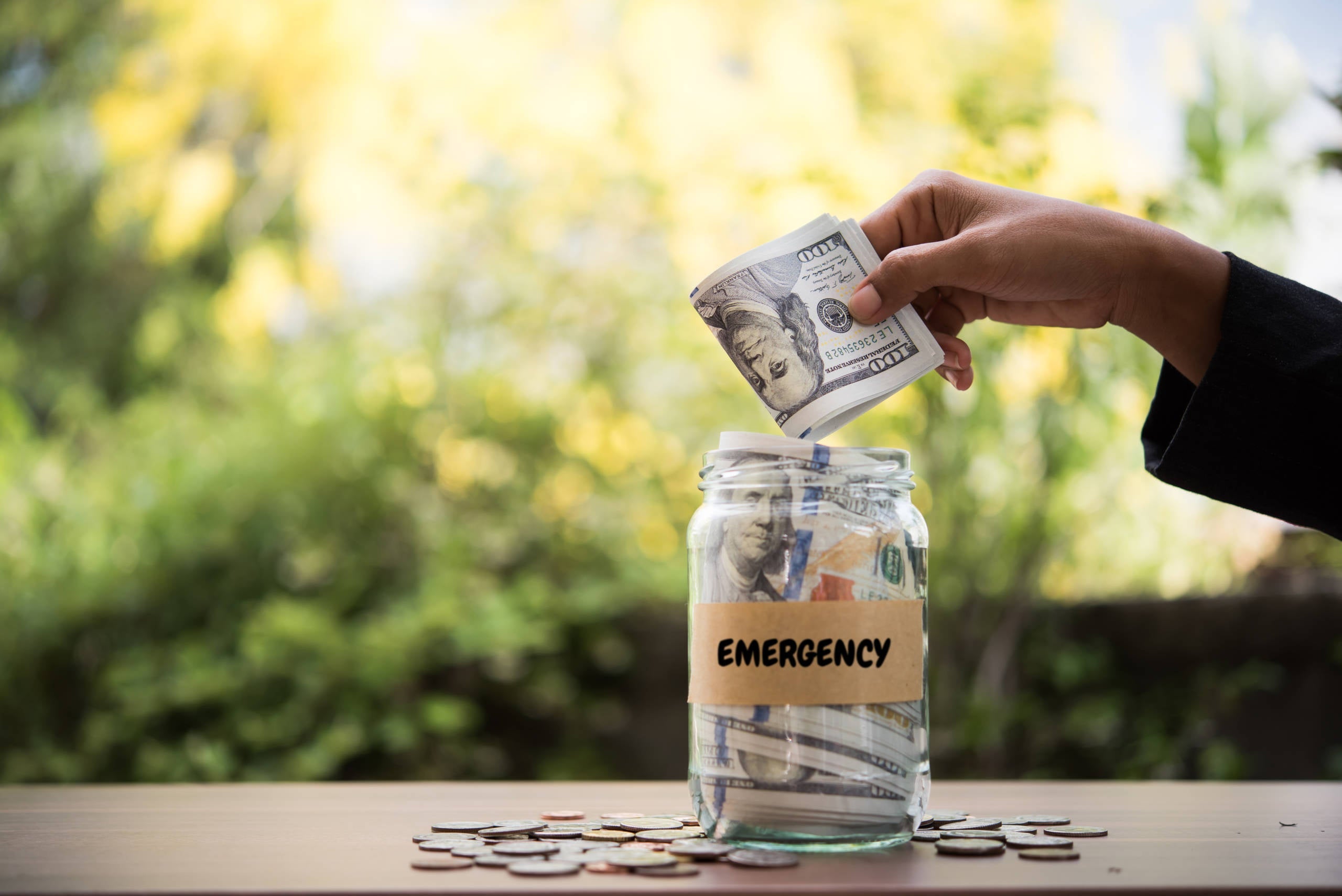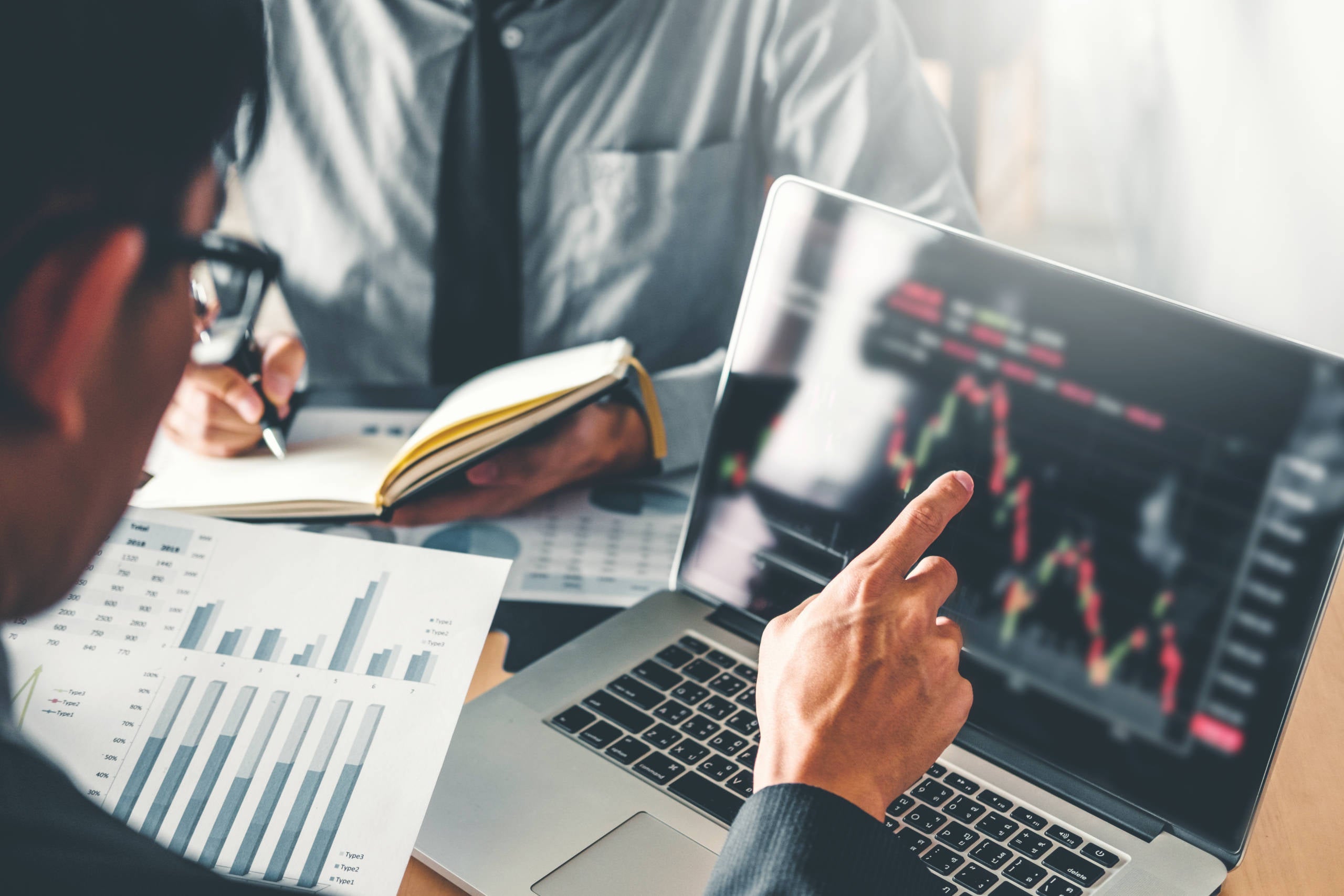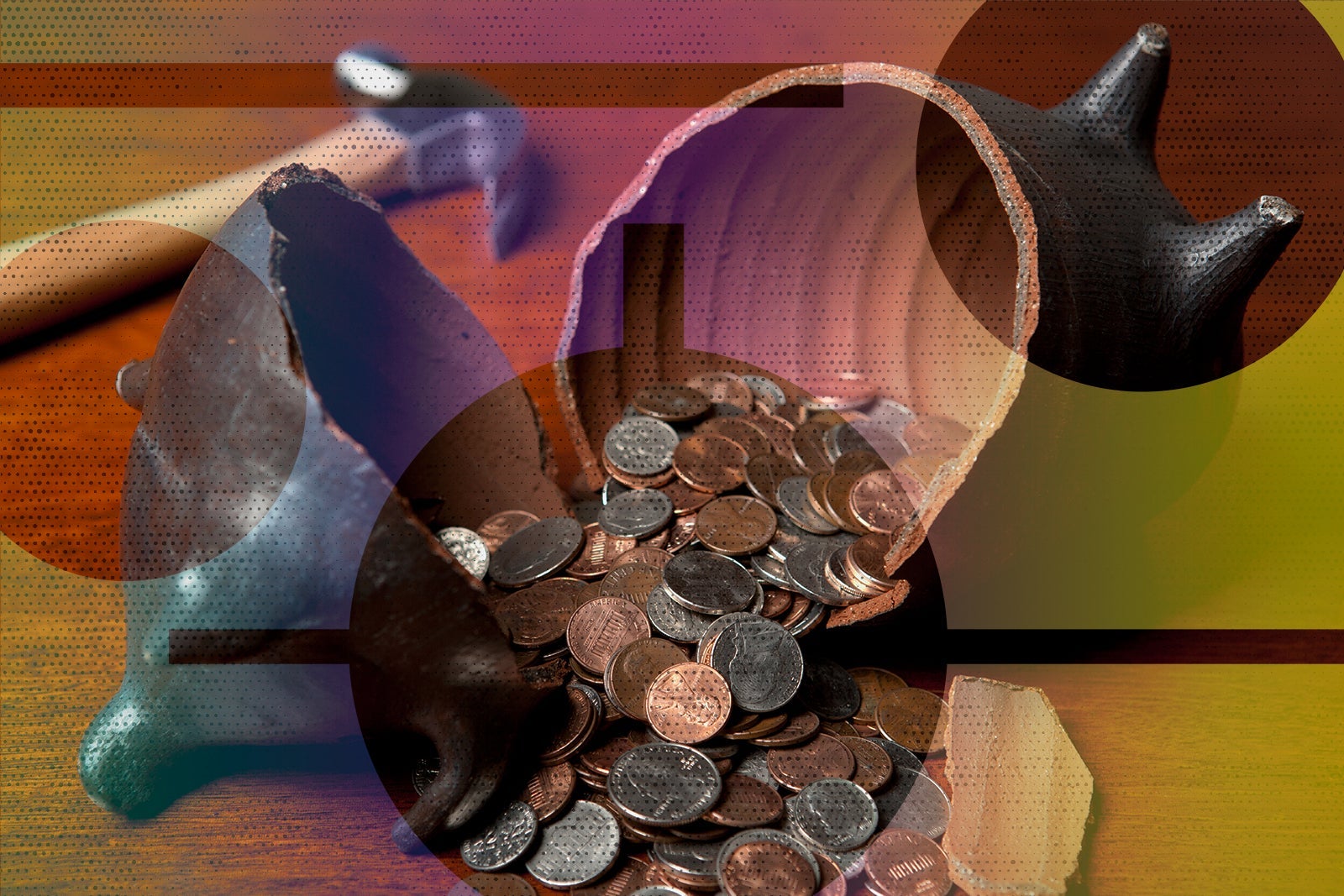What is an emergency fund and why does it matter?
We've partnered with American Express to bring you personal finance insights, advice and more. Check out Credit Intel, Amex's financial education center, for more personal finance content.
While responsible planning can help prevent a number of painful financial mistakes, no one ever plans to lose their job, get in a car accident or require expensive medical care. None of us know what specific challenges life is going to throw our way, but I promise you there will come a day when you get hit with a massive and unplanned expense. How well you prepare for that possibility could have a huge impact on your long term financial well being.
What is an emergency fund?
As the name suggests, an emergency fund is a safety net account that you can dip into as a last resort to pay for large and unplanned expenses. Air conditioner breaks in the middle of July? That's what your emergency fund is for. Car gets totaled on the way to work? Don't sweat it. Lost your job unexpectedly? Your emergency fund will help pay the bills while you focus on looking for work.
Most financial planners recommend keeping 3-6 months worth of expenses in an emergency fund. Additionally, conventional wisdom says that you should make sure to fully fund your emergency fund before starting on other financial goals, like saving for retirement, a down payment on a house, or discretionary spending like a new phone or an expensive vacation. The only time I'd suggest ignoring an emergency fund is if you're actively working on paying off debt, though even still you might want to try and set aside a month or two worth of expenses in case something comes up on your road to financial independence.
Ultimately you'll have to analyze your own financial situation, including factors like risk tolerance, job security, and what credit lines you have available to decide how much you want to keep in your emergency fund. If an expense comes up that requires you to dip into your emergency fund - like a $300 bill to tow your car after a flat tire - you'll want to make sure to take some money out of your next paycheck to replenish the emergency fund.
Much like health insurance or car insurance, emergency funds aren't fun to think about. The money you set aside here isn't going to help you retire early or lead a more luxurious life. In fact in an ideal world you'd set aside this money and never have to touch it. The problem is, people without an emergency fund are at a much higher risk of making poor financial choices. If you don't have an emergency fund, you're living paycheck to paycheck and your car breaks down, what do you do? You might end up putting the repair bill on a credit card with a high interest rate and getting yourself trapped in a debt cycle, or you might need to take out a personal loan which might be tough to repay. The human brain is wired to underestimate the likelihood of bad things happening, but by being honest about the risks that are out there and preparing for them today, you can keep your financial life on track no matter what curveballs life throws your way.
Where should you keep your emergency fund?
Once you decide how much money you want in your emergency fund, you need to decide on where to park it. There isn't one right answer here, but you'll want to make sure that the money is liquid and readily accessible when you need it. This means that investing the money is probably not a good idea. If the stock market tanks at the same time that you lose your job, you might see the value of your emergency fund drop precipitously at the exact moment you need it most. Other investments like real estate aren't a good idea for your emergency fund money, because it takes time to sell a house and get your money back.

Most people (myself included) park their emergency funds in some type of checking or savings account. The problem is, most banks pay next to nothing in interest these days, and with inflation averaging about 2% a year, this means that your money will lose value over time sitting in a bank. One simple way to combat this is to look for a high yield savings account. There are dozens of different options out there with interest rates ranging from about 1.5-2%, meaning your money will be safe and accessible when you need it without inflation chipping away at it over time. I personally keep my emergency fund in an American Express® high yield savings account that currently pays 1.7% APY.
What an emergency fund is not
For many people, an emergency fund will be the first type of long term savings account they open. As the money starts to pile up and grow into a couple thousand dollars, it can be really tempting to "borrow" some for whatever impulse purchase catches your eye. When it comes to personal finance, discipline and self control is the only piece that can't be taught, and you'll need to be responsible and not spend your emergency fund on impulse purchases, like a new phone or some unplanned Black Friday shopping. If you want a new phone you can save up for that separately, and even open another checking account (like a digital envelope) to set money aside for that specific goal.

You should only dip into your emergency fund for real emergencies, things like health issues, living expenses after a job loss, a broken car, or something else immediate and essential. To put it another way: if your purchase can wait a month or is something you could technically live without, it doesn't qualify as an emergency. Of course we're all human, and temptation is a real thing. One way I try to keep myself in check is by keeping my emergency fund with a different financial institution than my main bank. This way I don't see it every time I log on and I'm not tempted to spend it on frivolous purchases. I know it's there if I need it, but I'm not reminded of exactly how much cash I have sitting around on a daily basis.
Do you really need an emergency fund?
The whole point of an emergency fund is to have a financial safety net so you don't have to resort to debt when faced with unplanned expenses. But there's a huge opportunity cost to keeping your money in cash, instead of investing it in stocks, bonds or real estate. While it might keep pace with inflation it's not going to grow over time, and depending on how old you are that could translate to tens or even hundreds of thousands of dollars in lost potential earnings.
While I am by no means suggesting you should completely ignore the concept of an emergency fund and throw all the money into risky investments instead, there are a few reasons you might want to consider keeping a smaller amount of cash on hand, like 1-2 months of expenses instead of the 3-6 recommended by most financial advisors.
The first reason is credit cards. As all award travelers know they can be a valuable tool if used responsibly, or the biggest risk to your financial well being if you don't respect them. I recently had a small medical procedure performed, and got a bill of about $1,500 from my insurance company. Rather than taking money out of my emergency fund, I charged it to my credit card and will pay it off out of my paycheck next month. As long as you're sure you can pay them off before the bill comes due, your credit limit can act as one form of an emergency fund. Similarly, home owners who have a HELOC (home equity line of credit) have a similar option. While HELOCs usually have larger limits than credit cards, they also accrue interest even on shorter term "loans" so you'll need to decide which is best for you.
One of the biggest arguments in favor of keeping a large emergency fund is an unexpected job loss. But what if you're married? The odds of both spouses losing their jobs at the same time is pretty small, and if your family could survive on one income (maybe by cutting back a few discretionary purchases here and there), you could treat that as a form of emergency fund. Last but not least, if you've been saving for a while you might have amassed a decent sized portfolio of stocks and bonds. While there are tax implications to selling them (especially if they're in a retirement account like a 401k), doing so could be a last resort emergency fund for you.
The poorly kept secret to getting rich is that you need to put your money to work for you, and that means investing it in some way so that it can grow over time. This means minimizing "cash drag," or the amount of cash you have sitting idly and not really growing. While most people should fully fund an emergency fund before they even consider investing, there are some creative cash flow alternatives to just setting aside money in a checking account.

Bottom line
An emergency fund is the best way for you to take care or your future self, and minimize both stress and financial hardship when life inevitably gets a bit complicated. Most experts recommend putting aside 3-6 months worth of living expenses in a liquid account with easy access, such as a high yield savings account. Once you get started with your emergency fund, make sure to resist the temptation to use it for "wants" instead of "needs," and remember to replenish it if you need to dip into it to cover any emergency expenses.

